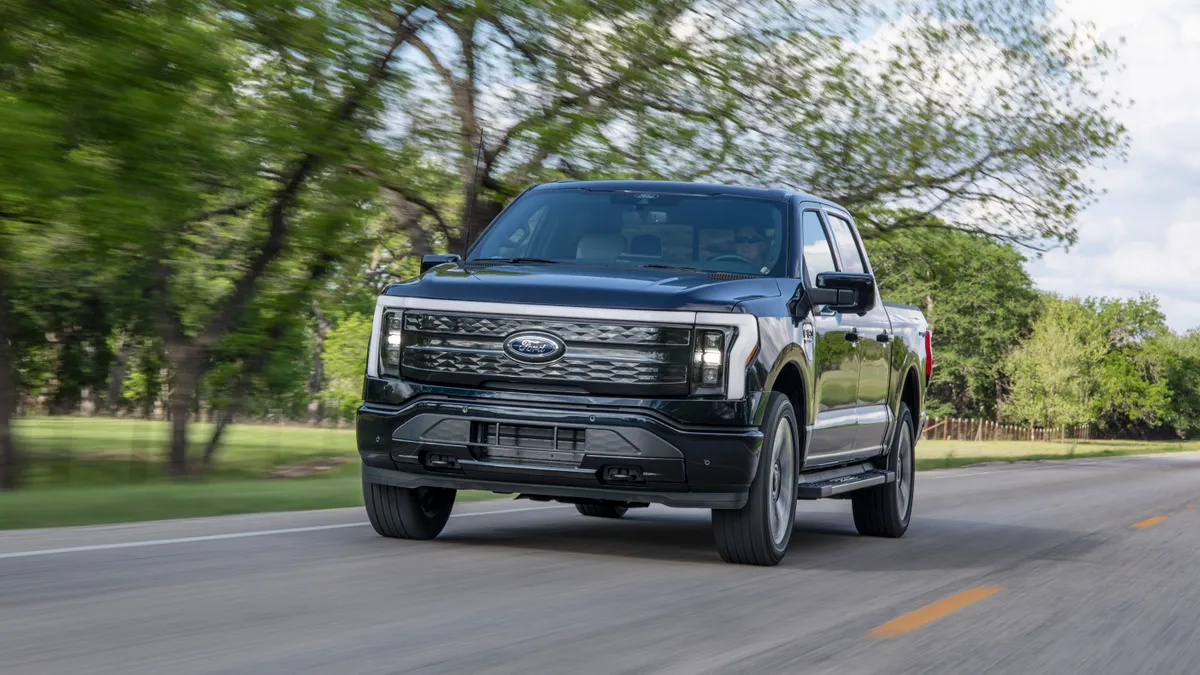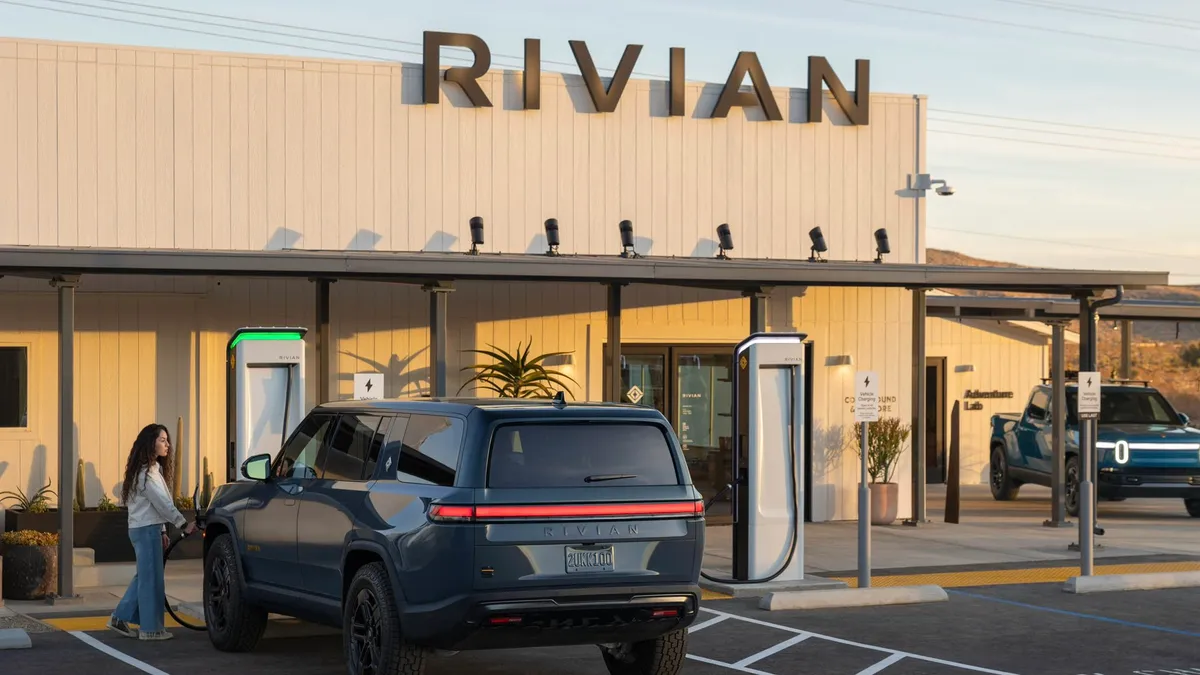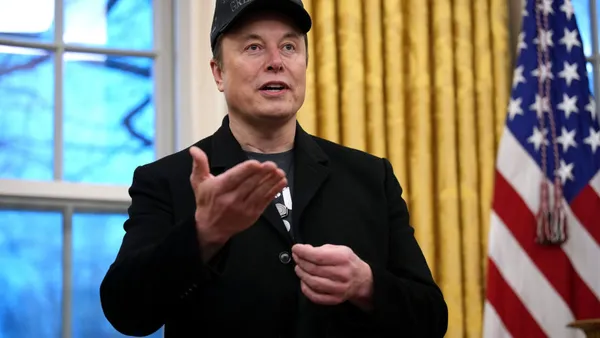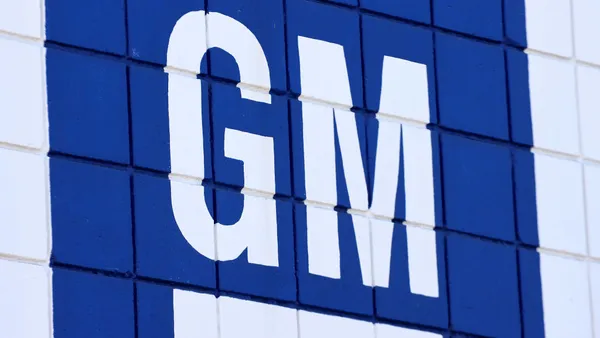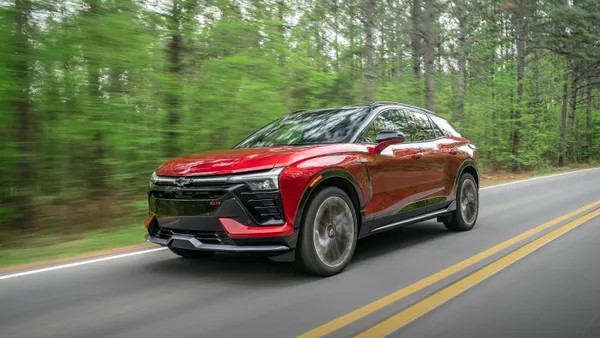Dive Brief:
- The number of electric vehicles that qualify for clean vehicle tax credits up to $7,500 under the Inflation Reduction Act will drop from 35 to 14 in 2024, according to the U.S. Department of Energy and the U.S. Department of Treasury’s Internal Revenue Service on Saturday.
- Many popular EVs, including the Nissan Leaf and some versions of the Tesla Model 3, will lose eligibility.
- Other vehicles, including several EVs sold by General Motors and the Tesla Cybertruck, may eventually qualify for federal clean vehicle tax credits in 2024, according to the automakers.
Dive Insight:
In December, the Biden administration published a proposed rule and guidance concerning the IRA’s foreign entity of concern requirements, which aim to support U.S. manufacturing and reduce U.S. dependence on China and other countries for EV components and critical minerals.
Those mandates, however, could make it harder for automakers to sell EVs since fewer vehicles will qualify for EV tax credits, making them less affordable for consumers.
Under the proposal, vehicles may not contain battery components manufactured or assembled by a foreign entity of concernto qualify for an EV tax credit in 2024. Likewise, vehicles would not be eligible for a clean energy tax credit in 2025 if they contain critical minerals extracted, processed or recycled by a foreign entity of concern. The Energy Department’s proposed guidance explains what foreign entities are of concern.
In October, the Treasury Department and IRS said they would let consumers transfer their clean vehicle tax credits — up to $7,500 — to a car dealer starting Jan. 1, 2024. The policy aims to increase clean vehicle sales by lowering a vehicle’s purchase price at the point of sale rather than forcing consumers to wait until they file their taxes to claim the credits.
But that change may not boost EV sales significantly if most models don’t qualify for tax credits.
EVs sold by other brands, including Audi, BMW, Cadillac, Ford and Volkswagen, will also lose eligibility for clean energy tax credits. However, more models could become eligible in 2024, as “some qualified manufacturers have yet to submit information on eligible vehicles that meet the current requirements,” the Treasury Department said on its website.
In an email, a Volkswagen spokesperson said the company is submitting its information to the federal government and expects model year 2023 and 2024 ID.4 models to be eligible for federal clean vehicle tax credits in 2024.
Similarly, GM expects that the Cadillac Lyriq and Chevrolet Blazer EV to regain eligibility in early 2024 after it implements changes to its supply chain, the company said in an email.
“While we await final rules, GM has pulled ahead sourcing plans for qualifying components in early 2024 and will advocate for our dealers and customers who purchase vehicles built ahead of the new guidance,” GM said in an email.
Nissan also said it “continues to work with suppliers in an effort to meet changing IRA requirements and regain tax credit eligibility for the Nissan LEAF in the future.”
BMW and Tesla did not respond to a request for comment. Tesla, however, says on its website that the “Cybertruck is likely to qualify for a federal tax credit later in 2024.”



